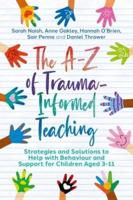Publisher's Synopsis
The need to develop collective skills to acquire a shared long-term vision and to manage change is evident, given that resources are limited and there is no such thing as complete independence or immunity from the damaging effects of other people's acts or failures to act. Current trends are having a significant effect on both the scope and the substance of specific responsibilities, individual or collective, voluntary or statutory. In addition, extreme interdependence exacerbates the differences between values, concepts of well-being and interests, potentially giving rise to mutually destructive conflicts, wastage of resources and externally negative consequences. This work on shared social responsibility considers, among other things, how to ensure that all stakeholders are recognized, make deliberation and co-production legitimate tools of democratic decision making and activate multi-player, multi-level and multi-sector processes of innovation and learning.












